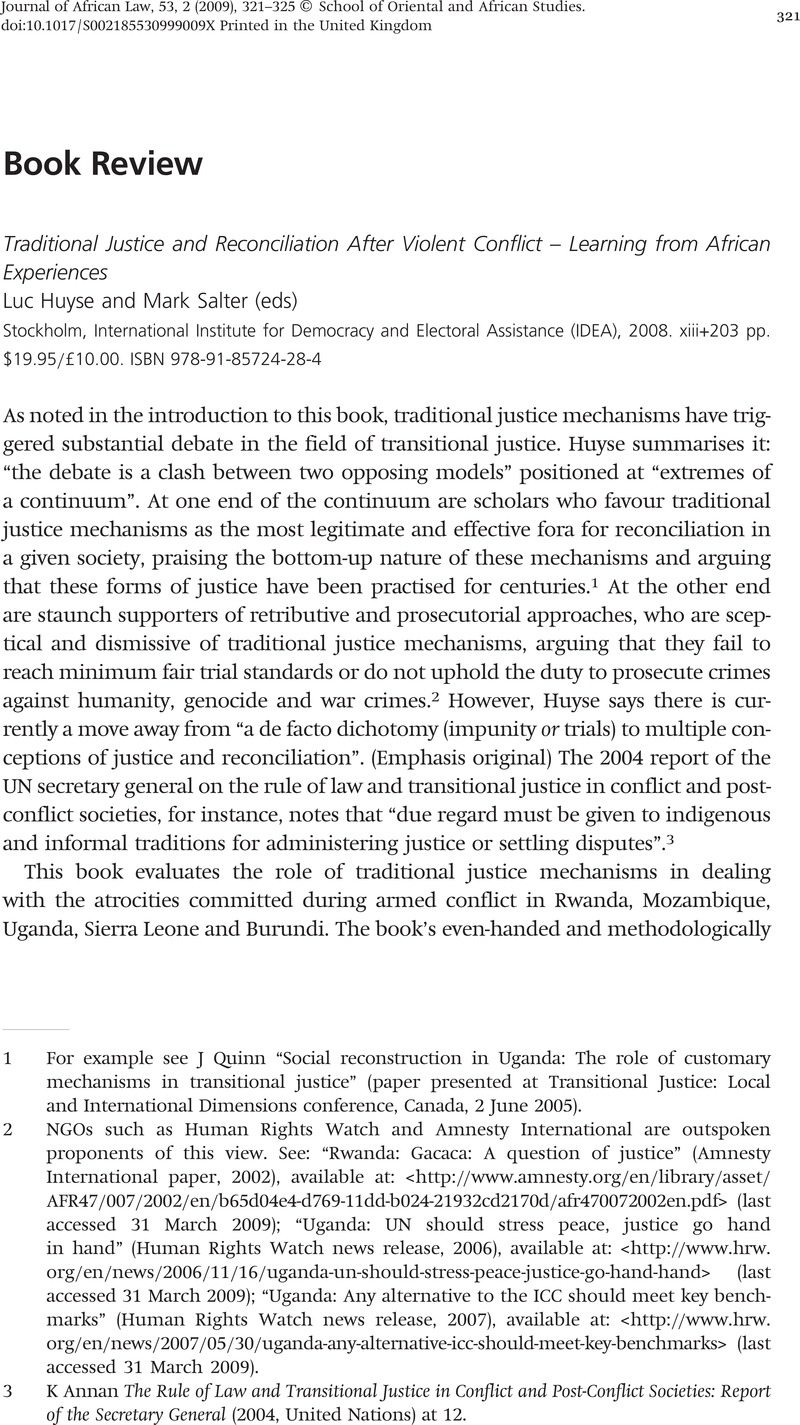No CrossRef data available.
Article contents
Traditional Justice and Reconciliation After Violent Conflict – Learning from African ExperiencesLuc Huyse and Mark Salter (eds) Stockholm, International Institute for Democracy and Electoral Assistance (IDEA), 2008. xiii+203 pp. $19.95/£10.00. ISBN 978-91-85724-28-4
Review products
Published online by Cambridge University Press: 18 September 2009
Abstract

- Type
- Book Review
- Information
- Copyright
- Copyright © School of Oriental and African Studies 2009
References
1 For example see J Quinn “Social reconstruction in Uganda: The role of customary mechanisms in transitional justice” (paper presented at Transitional Justice: Local and International Dimensions conference, Canada, 2 June 2005).
2 NGOs such as Human Rights Watch and Amnesty International are outspoken proponents of this view. See: “Rwanda: Gacaca: A question of justice” (Amnesty International paper, 2002), available at: <http://www.amnesty.org/en/library/asset/AFR47/007/2002/en/b65d04e4-d769-11dd-b024-21932cd2170d/afr470072002en.pdf> (last accessed 31 March 2009); “Uganda: UN should stress peace, justice go hand in hand” (Human Rights Watch news release, 2006), available at: <http://www.hrw.org/en/news/2006/11/16/uganda-un-should-stress-peace-justice-go-hand-hand> (last accessed 31 March 2009); “Uganda: Any alternative to the ICC should meet key benchmarks” (Human Rights Watch news release, 2007), available at: <http://www.hrw.org/en/news/2007/05/30/uganda-any-alternative-icc-should-meet-key-benchmarks> (last accessed 31 March 2009).
3 Annan, KThe Rule of Law and Transitional Justice in Conflict and Post-Conflict Societies: Report of the Secretary General (2004, United Nations) at 12Google Scholar.
4 The author of chap 2, on the Gacaca in Rwanda, is Bert Ingelaere, a Belgian scholar who has carried out significant field research in the Great Lakes region.
5 In the Gacaca in Rwanda, sexual violence is not adequately addressed due to the face-to-face nature of the proceedings. In the case of Mozambique, only male magamba spirits can return to the realm of the living and demand justice. In many of the Acholi rituals in northern Uganda, women play only a complementary role. With regard to the practices of the Kpaa Mende, women's grievances go unaddressed because elders tend to adjudicate in the interests of harmony, especially with regard to marital relationships. Finally, women were traditionally not allowed to join the bashingantahe in Burundi and may now only join together with their husbands.


